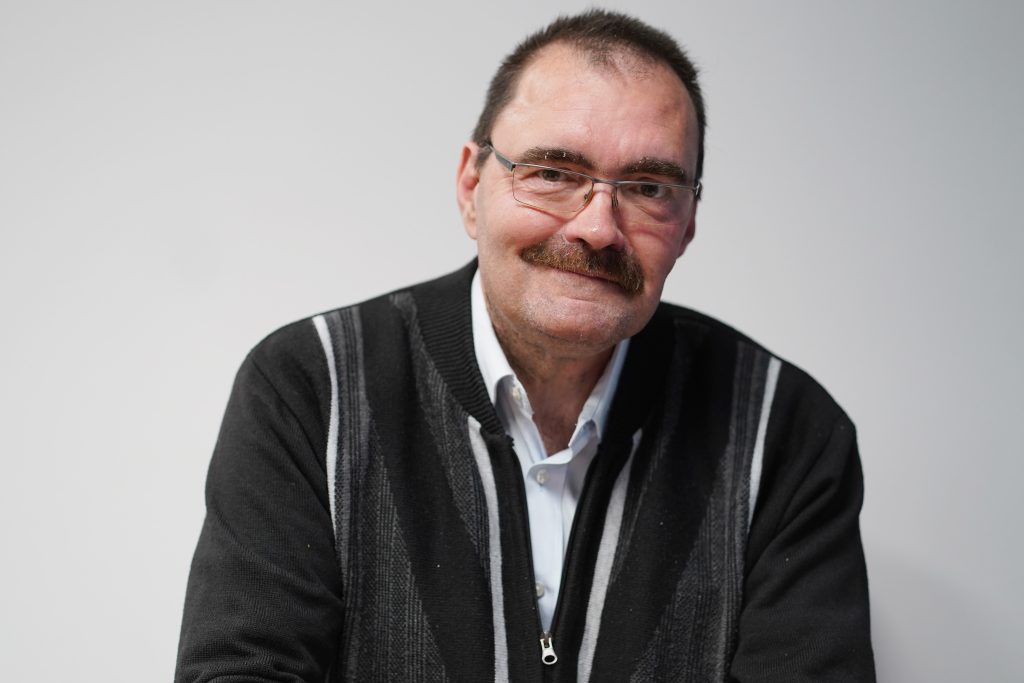Rethink Dementia – Kenny
Kenny Moffat (58) from North Lanarkshire, is living with young onset vascular dementia.
Getting a dementia diagnosis
Kenny was a Chief Executive Officer in a third sector organisation at the time of his diagnosis in 2016, when he was 50 years old. Following his diagnosis, Kenny suffered a heart attack and later a stroke which has left him with a left-sided weakness requiring him to use a walking stick or wheelchair.
Kenny had to retire from his position early due to being unable to drive as a result of his diagnosis. Kenny said, “I had known for a year before my diagnosis that something was wrong. There were rumblings among my work colleagues, with some thinking I had been drinking at work”.
After his diagnosis, Kenny recalls it was a relief for both him and his colleagues to know what the issue was, “my colleagues were really supportive. They made adjustments so that I could continue working as close to normal as possible.”
Part of Kenny’s role required him to conduct presentations, and whilst previously he would be able to do this off the cuff, he subsequently needed a script to follow. His colleagues provided this to him with no questions asked.
Today, Kenny has support from both his partner and his personal support assistant, Margaret. He feels lucky to have this support around him but notes the loss of independence has been challenging.

“There have been instances in public settings where I’m out with Margaret and people will speak to her and not acknowledge me. I’m still the same person, but people can sometimes be quick to jump to conclusions or judge.”
Living with dementia
Kenny has made some minor adjustments around the home to help keep him on track, “I often place post it notes and my diary entries around my home as reminders of what I have planned each day. There are of course things I find more difficult to do now, like reading, as I struggle with long form concentration, however there are alternatives that I’ve found just as enjoyable, like reading shorter books or audio books.”
Leading a socially active life is something Kenny praises for helping him live well with dementia, “I regularly swim, and I am a member of my church. I play an active role in ensuring the services are dementia friendly. I’m also part of a flute group and book club. These social activities have been invaluable in helping me continue to live a full life, and the community’s acceptance and support have ensured I remain included and engaged.”
Support with dementia
For the past three years, Kenny has proudly been a member of the Scottish Dementia Working Group, which is led by, and for people with dementia. The group campaigns to raise awareness and help people live better lives with dementia.
Kenny notes, “This group has been so important in helping me stay social, providing me with a support structure and the opportunity to represent people living with dementia and campaign for change.”
Kenny is passionate about changing the narrative about what it means to be diagnosed with dementia.